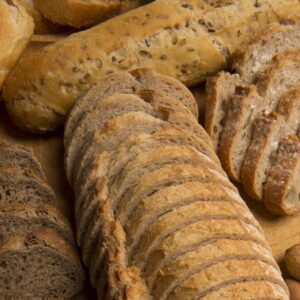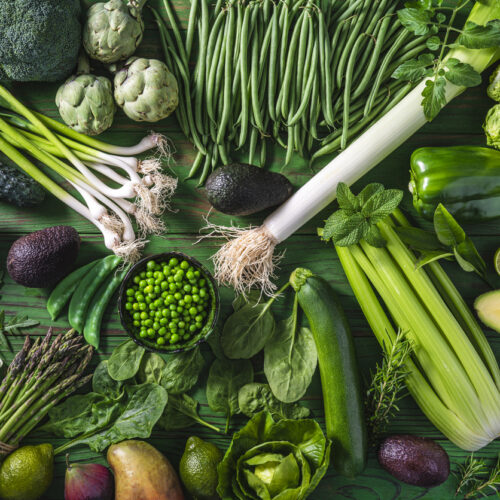
In a world focussed on weight loss, diets and food rules, food guilt is a common occurrence. I know, I’ve been there in the past and I’m sure many of you have been too. It generally occurs in a situation similar to the following:
You’ve eaten healthy food all day, only to come home feeling a bit stressed. You open the fridge and see some chocolate biscuits and grab a couple. They taste great but you kind of panic and feel guilty. All that sugar and those refined carbs! Since you’ve gone and ruined your healthy eating, you may as well keep eating, get rid of all the biscuits and dispose of the evidence. You feel guilty and vow to be ‘good’ tomorrow.
While many of us aim to be healthier, the quest to perfectly follow food rules can lead us down a path of food guilt which, more often than not, leads to overeating and a cycle of guilt-binge-restrict.
When foods are labelled as ‘bad’, ‘not clean’ or even ‘toxic’ then it’s not surprising we feel guilty for eating them. A seemingly simple, but often challenging, mind shift is what it takes to stop feeling guilty about food and stop the guilt-binge-restrict cycle. Here are some more reasons you should stop with the food guilt and a few steps to point you in the right direction to get started.
1. Food should be pleasurable
A delicious slice of birthday cake, a creamy chocolate bar, some hot salty fries – these are all foods that can bring us pleasure, yet many are left feeling guilty after eating something like this. Or they feel like they need to spend hours slogging it out at the gym to ‘earn’ them. Instead of feeling guilty, eat slowly, enjoy the flavours and textures, and pay attention to the eating experience. Remember the big picture. One snack or meal is a small part of your overall diet.
When food becomes forbidden it becomes all the more alluring, and we often rationalise eating lots of it to get the ‘badness’ out of the way and start being ‘good’ again later. Instead of thinking of foods as good or bad, reframe them to everyday foods and sometimes or treat foods.
2. All foods can be a part of a healthy diet
If you love chocolate, chippies or pies, fear not, they CAN be a part of a healthy diet. Of course, the key is frequency, portions and the overall quality of your diet. I’m definitely not saying go and eat those types of foods all day every day, but work towards finding a healthy balance between all and nothing.
3. If you struggle with moderation, the problem is not the food
Research working with clients and personal experience has taught me it’s not the food that’s the issue when it comes to overeating. Instead of focusing on a particular food, focus on your relationship with the food. Moderation isn’t a struggle when you have a healthy relationship with food. If you focus on controlling the food, the cycle of guilt, restrict, binge, guilt will continue.
Worrying you won’t be able to stop eating a certain type of food is a common concern, but when you learn to be an intuitive eater (more on this later), you’ll realise this isn’t the case. Banning foods simply makes them more desirable and increases the likelihood of eating that food past the point of comfort. If you often have cravings, this article contains some useful tips to decide if it is an emotional desire or a real desire and how to respond.
4. Learn the practice of mindful eating
Mindful eating is a powerful tool that enhances your enjoyment of food. It helps you to be more in tune with your appetite, stress less about food, and puts you back in control of your food decisions. Research shows that mindful eating can reduce binge eating and improve feelings of self-control. Here’s a useful video that introduces the concept of mindful eating.
For more advice on mindful eating, visit a registered nutritionist, dietitian or other health professional that specialises in this area.
5. Learn to be an intuitive eater
Intuitive eating is something I’ve become quite passionate about in the past year. Intuitive eating is, in a way, an anti-diet approach that helps people develop a healthy relationship with food, while still having a focus on healthy living and good nutrition.
Intuitive eating doesn’t rely on food rules or restrictions, rather you learn to respond to your own body cues. You become your own expert. It sounds simple, but it can be a complex process to learn if you’ve been a dieter or relying on food rules for a long time. With intuitive eating, you listen and respond appropriately to your hunger and fullness cues, eat mindfully, ditch food rules and discover the satisfaction and pleasure of food. There is a focus on nutrition and exercise too, but it’s a gentle, ‘no rules-based’ approach.
There are some great books on intuitive eating, or find a registered nutritionist, dietitian who can help you work through this approach.
Working towards a healthier relationship with food takes time, but it’s worth it for long-term health and well-being. Seeking help from a qualified professional can be just what you need to change your thoughts around food and find a balanced approach to healthy living.
www.healthyfood.com










